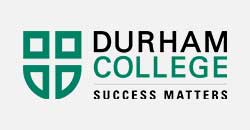Supply Chain Management - Global

Degree:Post Graduate
Program Overview:
Crossing borders and spanning oceans, supply chain is a global industry that provides endless opportunities for skilled professionals who can plan, control, execute and optimize a product’s flow from point of origin to point of consumption in the most economical way possible. Each major phase of a product’s movement through the supply chain has its own distinct business process and discipline, and supply chain professionals have the unique knowledge and skillset needed to effectively manage the intricacies of this process.
Considered one of the most essential sectors of Canada’s economy, there are currently more than 800,000 supply chain employees (excluding truck drivers) who work in a range of occupations and industries across the sector. Approximately 150,000 of these positions are at the professional or managerial level.
The Supply Chain Management – Global program is a strong choice for students with previous education or experience in business administration or operations and technical and engineering fields, and will deepen their understanding of the complexity and interconnectedness of roles, work processes, transactions and stakeholders within and between supply chains, and the impact supply chain decisions can make on an organization’s financial prosperity.
Admission Requirements:
GPA: 2.5 or above
IELTS: Overall 6.5 with no band lower than 6.0
PTE: No band below than 60
Tuition Fee: International - Click Here
Learning Outcomes:
Examine the connections between strategic objectives, stakeholder expectations, and supply chain design, functions, processes and roles, to guide decision-making, problem-solving and coordination of tasks.
Determine the value added and financial implications of supply chain decisions and design on overall business profitability, efficiency and stakeholder satisfaction.
Ensure supply chain activities and transactions are compliant with relevant legal, regulatory and contractual obligations, and industry and organization standards and policies for quality, health, safety, accountability, social and environmental responsibility.
Use risk mitigation tools and strategies to inform supply chain management decisions.
Contribute to the acquisition and sale of goods, services and materials in accordance with best
Career Outlook:
Business data analyst
Demand and supply planner
Inventory co-ordinator or manager
Operations co-ordinator or manager
Production logistics co-ordinator
Purchasing agent or officer
Program Intake: January & September
For More Details Visit Us.